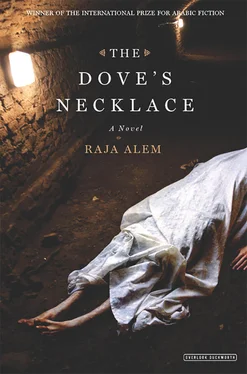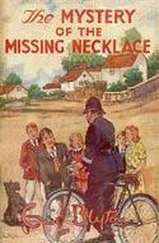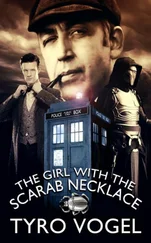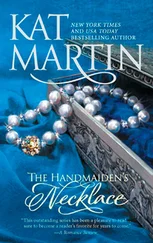Raja Alem - The Dove's Necklace
Здесь есть возможность читать онлайн «Raja Alem - The Dove's Necklace» весь текст электронной книги совершенно бесплатно (целиком полную версию без сокращений). В некоторых случаях можно слушать аудио, скачать через торрент в формате fb2 и присутствует краткое содержание. Год выпуска: 2016, Издательство: The Overlook Press, Жанр: Современная проза, на английском языке. Описание произведения, (предисловие) а так же отзывы посетителей доступны на портале библиотеки ЛибКат.
- Название:The Dove's Necklace
- Автор:
- Издательство:The Overlook Press
- Жанр:
- Год:2016
- ISBN:нет данных
- Рейтинг книги:4 / 5. Голосов: 1
-
Избранное:Добавить в избранное
- Отзывы:
-
Ваша оценка:
- 80
- 1
- 2
- 3
- 4
- 5
The Dove's Necklace: краткое содержание, описание и аннотация
Предлагаем к чтению аннотацию, описание, краткое содержание или предисловие (зависит от того, что написал сам автор книги «The Dove's Necklace»). Если вы не нашли необходимую информацию о книге — напишите в комментариях, мы постараемся отыскать её.
Tackling powerful issues with beautiful and evocative writing, Raja Alem reveals a city-and a civilization-at once beholden to brutal customs, and reckoning (uneasily) with new traditions. Told from a variety of perspectives-including that of Abu Al Roos itself-
is a virtuosic work of literature, and an ambitious portrait of a changing city that deserves our attention.
The Dove's Necklace — читать онлайн бесплатно полную книгу (весь текст) целиком
Ниже представлен текст книги, разбитый по страницам. Система сохранения места последней прочитанной страницы, позволяет с удобством читать онлайн бесплатно книгу «The Dove's Necklace», без необходимости каждый раз заново искать на чём Вы остановились. Поставьте закладку, и сможете в любой момент перейти на страницу, на которой закончили чтение.
Интервал:
Закладка:
The moment they were off the hospital grounds, al-Ashi undid the restraints and Yusuf immediately — and for the first time in a week — closed his eyes and fell asleep in the back seat. Khalil’s usual acerbic comments deserted him when he laid eyes on the pitiful sight in the rearview mirror. The car went through Ta’if and headed in the direction of al-Hada and the Kara mountains, and down to the Plain of Arafat. Halima, al-Ashi, and Khalil listened the whole time to the remote sound of Yusuf’s breathing. It sounded like he was trying to breathe life itself into his lungs, to breathe in the sanity that had been taken from him at Shihar. But no sooner had they reached the Sanctuary in Mecca — the car hadn’t even stopped — than Yusuf shoved the car door open, leapt out, and disappeared into the crowd. Halima grabbed al-Ashi’s arm to stop him from chasing after him.
“He’s in God’s hands now.” Indeed, she didn’t attempt to look for him at all but merely sent Mu’az to check on him later and make sure that he was still remembering to sleep. For three days straight he didn’t leave the Sanctuary, not even to use the bathroom. He was like an empty shell, living off handfuls of holy Zamzam water, feeling ever more weightless and transparent. He would stand purposefully in the great courtyard of the mosque, in the middle of one of the marble passageways that led to the Kaaba, and block the path of the people entering. People walked straight through him as though they were walking through a sunbeam. His body no longer had any solid, substantial presence, and people could penetrate through it now. Instead, his body functioned as an X-ray, revealing their innermost essences.
Each day Mu’az would stand watching Yusuf from a distance as he took up his position at one of the mosque’s doors. When the call to prayer sounded, Yusuf would greet those entering, grabbing the hands of strangers and clasping them with childlike joy in a gesture of welcome: “You’re a good man! I salute you!”
Sometimes he would chase someone maniacally through the colonnades, as he did to one toothpick-seller. “You’re evil!” he screeched. “I see the devil in you!”
People would run to get away from him, and they took care to avoid crossing his path, terrified by this man who might equally welcome them or condemn them. It pained Mu’az to see Yusuf slipping like a phantom in and out of the colonnades in pursuit of visions that eluded him. Perhaps the only place they existed was inside his head. He gathered his strength and approached Yusuf, who seized his hand eagerly.
“It makes me so happy to see you through these new, insightful eyes of mine. I see you’re an extension of my body, Mu’az, like a third knee that nothing can break. I know you’re not shocked by what I’m doing to the worshippers, because I can see right through you just like I can see through them.”
“I don’t know if what you’re doing is right, Yusuf. Why are you just repeating the stuff Sheikh Muzahim always says, dividing people into angels or devils?!”
“No no, Mu’az, it’s not me who’s dividing people up. I’m no longer a body. I’m weightless like a beam of light. Try to catch me!” Mu’az retreated; he thought he was going to walk straight through him.
When Yusuf returned to the Lane of Many Heads several days later, he was as silent as the grave. The neighbors watched as he spent his nights wide-awake, his eyelids never even drooping for a moment. He was in a state of such terrible animation that he couldn’t lie or sit down. He would pace back and forth, tearing up his papers: he started with his identity papers, went on to his signed diploma from Umm al-Qura University, then drafts of unpublished articles from Umm-al-Qura newspaper, his memoirs of Mecca, personal photos taken by his university classmates.
“I’m not going to leave a single word behind. I’ve got to free myself from this deceitful sham of a life that’s taken everything from me,” he repeated agitatedly to his mother Halima, who watched him wordlessly as he tossed scraps of his innocent past out into the alley. The people of the Lane of Many Heads awoke each morning to find themselves treading on fresh piles of Yusuf’s shredded-up life.
All that came after Azza’s first betrayal.
A dove alighted by their feet in the Mosque of the Sanctuary, bringing Halima back to the present. The dove hopped about in little circles, cooing and fixing its red gaze on Yusuf. In front of them, a blind Quran reciter chanted invocations in a low tone, his white eyes rolling. The Quran on his lap was open to the Verse of the Light: “God is the light of heaven and earth. His light is like a niche and within it a lamp …” His eyes grew whiter as he recited.
“It won’t last for long. Just until they find out what really happened with the body, and then, gracious Lord, let this adversity pass.”
They were suddenly interrupted by a great crash that tore through the tranquility of the courtyard. The worshippers around the Kaaba scattered and the crowds retreated. Glass smashed somewhere in front of them, and Yusuf instantly understood what had happened: a man, his face covered, had pulled the dome off the case covering the Prophet Abraham’s footprints and was now circling around it, threatening the guards with a chainsaw. People were shrieking in panic: “He’s stolen the key to the Kaaba! Stop that infidel!”
The terrified guards hesitated, keeping out of reach of the chainsaw, and the man darted toward the Mas’a gallery, a passage spanning the two holy mountains. In a split second, Yusuf took off after him, taking a shortcut around the Well of Zamzam, where he’d left his wheelchair by a row of taps. The thief was making for the outside gate of the Mas’a when the wheelchair hurtled into him, sending the chainsaw flying through the air. It crashed to the ground right in front of Halima, who had come running after Yusuf: “The thief! Watch out, Yus—” The hoarse cry had barely left her chest when the two bodies connected and went rolling across the floor. As the crowd watched the struggle between the two mismatched forms — skinny Yusuf battling a giant with mad, supernatural strength — the key shot out and went skimming across the marble floor. Yusuf dived after it. The crowd gasped as the key spun toward the drain beneath the rows of taps and was swallowed up. Yusuf plunged his hand into the drain vainly while behind him, the thief vanished into thin air. By the time the police arrived and the cleaning company had been called to open up the drain, there was little trace of what had happened except for Yusuf and the lost key. Even those who’d witnessed it happen doubted they’d really seen the key fall into the drain.
A heavy silence lay over the mosque, and flocks of doves settled motionless on the tops of the colonnades. The smashed dome gaped open over the plinth where Abraham’s footprints, after their calamity, lay bare in the Meccan night. The two prophetic feet seemed desperate to continue their eternal journey.
Aisha: Potential Identification of the Deceased (preliminary)
I , THE LANE OF MANY HEADS, PLAYED DEAD AS DETECTIVE NASSER AL-QAHTANI, a cold cup of coffee on the table before him, sat fiddling with a few date pits in the protective shade of a cafe at the entrance to my alley. He waited patiently, sheltering from the blaze of the sun, which his heavy uniform seemed to suck right up, leaving him dripping with sweat. He watched Sheikh Muzahim in his shop until the sun was halfway across the sky and Imam Dawoud sounded the call to prayer. When Sheikh Muzahim picked up his cane and headed over to the mosque to pray, Nasser leapt up, crossed the alley, and slipped easily through the shop to the small door at the back. He went through to the storage area beyond, where he was swallowed up by a maze of tiny rooms, each stuffed to the ceiling with sacks of produce, leaving scarcely enough room to set a single foot inside. Nasser crept forward, urged on by the obvious emptiness of the place and the smell of foodstuffs long past their sell-by date. He spotted the huge old-fashioned radio set that had been hollowed out and concealed under the staircase leading to the roof where Halima and her son Yusuf lived. This was the radio set in which Azza hid Yusuf’s letters. Nasser headed past the furthest aisles of the storage area to the back, where Azza’s kitchen was. Before him was a small stove placed on a low table, and next to it were copper pots and non-breakable melamine plates drying in the sun under a wide skylight in the roof. A rusty hosepipe, still dripping, poked out of the bathroom, with its squat toilet and peeling walls. Nasser looked up at the narrow window close to the ceiling and saw, on the bars of the window, the offcuts of fabric that Azza used to signal to Yusuf to inform him of her father’s whereabouts. Most of the scraps were black; in the middle there was a single piece of red fabric. Nasser couldn’t translate the message. His attention was drawn to some pieces of fabric used as sanitary towels. They’d been washed and hung out to dry, they’d stiffened but they still bore the faint scent and outline of impossible-to-remove bloodstains. Was it safe to sneak into Azza’s room? Standing in that narrow space, looking at those scraps of fabric, Nasser felt like he was the one being watched.
Читать дальшеИнтервал:
Закладка:
Похожие книги на «The Dove's Necklace»
Представляем Вашему вниманию похожие книги на «The Dove's Necklace» списком для выбора. Мы отобрали схожую по названию и смыслу литературу в надежде предоставить читателям больше вариантов отыскать новые, интересные, ещё непрочитанные произведения.
Обсуждение, отзывы о книге «The Dove's Necklace» и просто собственные мнения читателей. Оставьте ваши комментарии, напишите, что Вы думаете о произведении, его смысле или главных героях. Укажите что конкретно понравилось, а что нет, и почему Вы так считаете.












